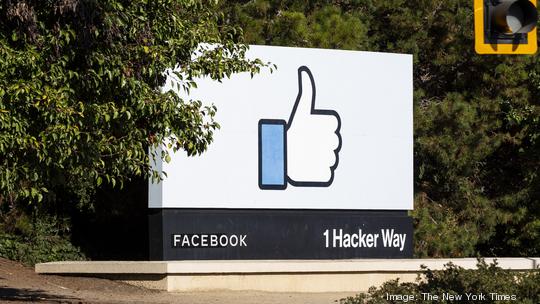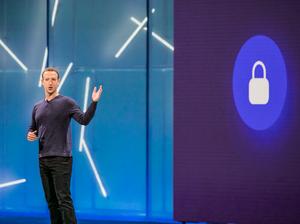
Facebook announced Thursday it is rebranding as "Meta" which will become the parent company that oversees all of Big Blue’s apps including the flagship Facebook, Instagram, Oculus, WhatsApp and any future products it might launch. The change is in broad strokes similar to Google's corporate restructuring as Alphabet in 2015.
But the transition also reflects CEO Mark Zuckerberg’s larger vision of his company building out a global “metaverse” while also attempting to refresh the company’s image after many years of controversies. It is also an attempt to stay relevant with younger generations who have increasingly migrated to newer social media apps like Snapchat and TikTok. As part of its new strategic direction, Facebook (now Meta) said it will spend at least $10 billion in 2021 alone. In light of all this, we put together a handy entry-level explainer on the metaverse and what it could entail.
So what, exactly, is the so-called metaverse?
The idea is popular in science fiction and gaming circles with the basic concept going like this:
Physical and virtual spaces weave together in a way that make them both essential parts of our lives. There is essentially no distinction between going out “IRL” (in real life) versus meeting people online. It’s as if you were to jump into a game of Second Life but you’re playing the game as yourself and every decision you make in the game has real-world consequences. If this sounds to you like a viral marketing scheme for the upcoming Matrix movie you're probably not alone.
For a more recent interpretation, flip on Steven Spielberg’s 2018 movie adaption of Ready Player One — a 2011 science fiction novel by Ernest Cline – where the hero of the story plugs into a virtual reality universe on a quest to escape the doldrums of his "real life."
Where does this term come from?
The idea has been around in various forms for decades but author Neal Stephenson coined the term itself in his 1992 novel Snow Crash. In the dystopian novel, humans interact with each other via avatars in a shared virtual world. Stephenson describes the metaverse as a virtual reality experience in a 2017 interview with Vanity Fair (note: the Black Sun is an exclusive club in the novel):
"VR has the ability to take you to a completely different fictional place—the kind of thing that’s described in the Metaverse in Snow Crash. When you go into the Metaverse, you’re on the street, you’re in the Black Sun, and your surroundings disappear.”
Isn’t Fortnite building its own metaverse, too?
Yes, Fortnite also wants to build out its own metaverse. As does Microsoft (for enterprise software) and China's Tencent.
Roblox and Animal Crossing are also examples of metaverse-style games where players build out personalized virtual worlds that can be visited by other players. What they all have in common is that they are essentially virtual economies with goods and services, entertainment, travel and currency.
These gaming platforms have already attracted major stars like Ariana Grande and Lil Nas X who have taken to the metaverse to perform virtual concerts.
Will I need to become a hologram to join one?
Not necessarily, but you'll need an avatar that can be displayed in virtual, augmented and mixed reality applications. You won’t physically get beamed up into a teleportation device (at least for now). Instead, the most likely scenario is that you’ll need a VR or mixed reality headset like Facebook’s Oculus, HTC’s Vive, Sony’s PlayStation VR or Microsoft's HoloLens in order to experience and join these spaces.
So what exactly is the point i.e. what can I do while in the metaverse?
Think of the metaverse like an extension of your real life. Wanna grab coffee with a friend who lives 3,000 miles away? Brew your caffeine juice, slip on a headset and then head to a virtual café to "hang out." Wanna watch Squid Game with a dozen other people? Cue up Netflix to have a movie night at a virtual drive-in theater. Maybe window shop for new outfits that you can try on with your avatar and buy products just by pointing with your finger — like Instagram shopping on steroids. Concerts, work meetings and group exercise classes are a possibility, too. Though the latter will get sweaty IRL.
Why is Facebook so bullish on the metaverse?
Facebook recently announced it would hire 10,000 people in Europe over the next five years to work on its concept of the metaverse. Mark Zuckerberg’s vision was revealed to the world in July when tech news site The Verge published an interview with the CEO. In it, Zuckerberg described his vision for the metaverse as a “successor to the mobile internet” that is “certainly not something that any one company is going to build.” But there are very few details about exactly how this would work in practice. Activists and regulators have been pushing tech companies to make their products more interoperable. Think: the telephone. It would be unfathomable today if you couldn’t call a Verizon customer from a T-Mobile phone, or switch carriers without being able to transfer all of your personal data to a new phone. However, tech companies are still incentivized to maintain as much of a walled garden around their products as possible. Still, it’s hard to imagine experiencing Facebook’s metaverse and Fortnite’s metaverse simultaneously during a single virtual reality session.
Who else is developing their own version of the metaverse?
Facebook is not the first company to attempt building out a metaverse, though it is certainly the largest with 3.6 billion people using at least one of its products every month. Epic Games, the maker of Fortnite, is also trying to create a metaverse for gaming and social experiences. Its CEO Tim Sweeney recently told the Washington Post that his vision of the metaverse would be the anti-Facebook: no ads. But it will rely on continuous content creation — by developers, brands and users — fueled by Epic's own suite of software tools known as the Unreal Engine. Microsoft sees its suite of products as the building blocks of a metaverse for enterprise software built on the Azure cloud — in other words, "a convergence of the physical and digital worlds" for businesses to manage things like analytics, simulations and autonomous systems. In China, Tencent sees a lucrative opportunity for revenue from live events and brand partnerships with little focus on user-generated content, which is generally a hallmark of the metaverse concept everywhere else.
What do the skeptics say?
As with most Facebook announcements, there are lots of questions and concerns. It's an expensive endeavor that will eat into its profits and take years. “Later in this decade is when we would sort of expect this to be more of a real business story,” Zuckerberg said during the company's third quarter earnings call this week. There's also the problem of content moderation. Hate speech, harassment and misinformation are persistent problems that the company hasn't solved despite having an army of 10,000 content moderators who often struggle with their own mental health issues triggered by hours spent reviewing disturbing content. Any problems that exist on Facebook's apps today will get carried over to its metaverse. Facebook seems to be unfazed by this. On Thursday, Zuckerberg told reporters "there will always be problems, but 'we are here to create things,’" Axios reported.
Zoom fatigue is real. Do I really want to spend more time with my coworkers in virtual reality?
Facebook seems to think so. One of its first forays into the metaverse is a VR “collaboration experience” called Horizon Workrooms where coworkers (via their avatars) can gather, collaborate, hold meetings and retreat back into their private offices all within a virtual replica of the office.





